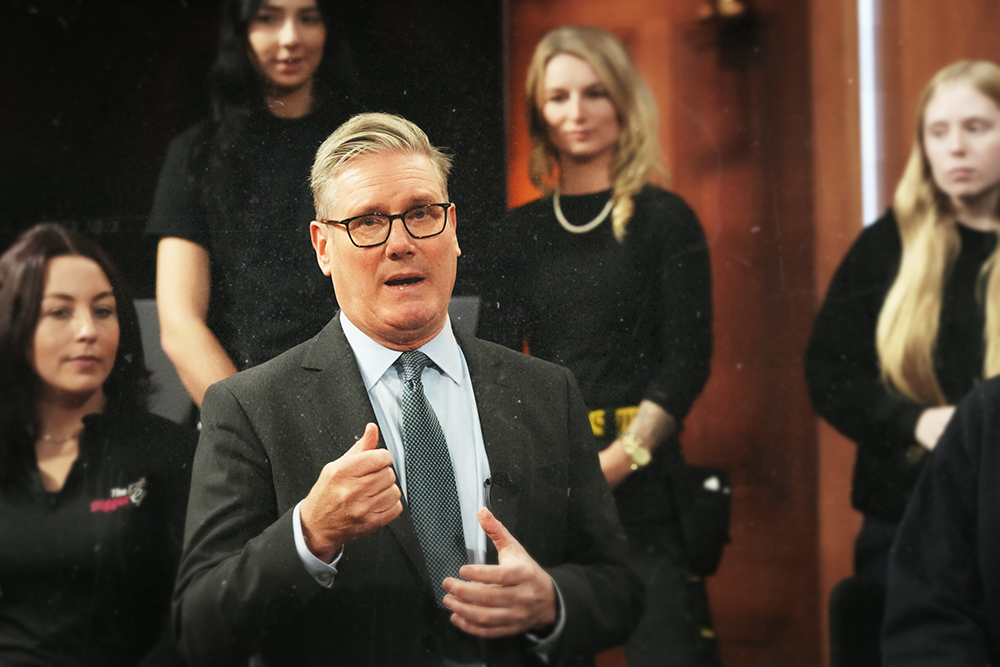There aren’t many politicians calling for a rise in immigration to Britain at the moment, but you can count on the SNP to be different. Today the party’s Scottish visa bill had its second reading in the sparsely-populated Commons, with sponsor Arbroath and Broughty Ferry MP Stephen Gethins spending 50 minutes elaborately making the case for its passage through parliament. Taking aim at the ‘poisonous’ Reform stance on Britain’s borders, Gethins’ speech dipped between reprimanding Labour for their lack of support and pleading with them to back his call to fully devolve immigration powers to Scotland. Neither carrot nor stick seemed to have much effect.
Giving Scotland a separate immigration system to the rest of Britain would, the SNP believe, help tackle the problems of depopulation and deskilling faced by Scotland’s highlands, islands and rural areas. Gethins is calling for the 1998 Scotland Act to be amended to allow Holyrood full control over Scotland’s migration policy and set up a Scottish visa. It’s a move that the MP insists has received informal cross-party support from Scottish parties and which would not, apparently, require border checks at the junction between England and Scotland. Quoting Labour’s own MP for the Western Isles, Torcuil Crichton, Gethins proclaimed that there is no ‘one size fits all’ approach to immigration across the UK given just how different the population problems are north of the border.
Take, for example, the Scottish Highlands, whose population grew by a mere 1.4 per cent between 2011 and 2022, while the number of the region’s residents over the age of 75 soared by almost two-thirds in the same period. The ageing population pressures seen elsewhere in Britain are amplified here as the number of working age adults dwindles. Similar can be said of the Outer Hebrides – Scotland’s Western Isles is forecast to see a 6 per cent decline in its population by 2028. Young people who grew up in the country’s most rural areas are relocating to central belt cities for university or to find a job. Making matters worse is the country’s birth rate, which remains low – with reports last year noting that the number of births in Scotland fell to the nation’s lowest-ever recorded level. The trend has been blamed on the country’s offering of poor public services in remote areas, with Scotland’s progressive tax system and insufficient investment in Scotland’s skills sector also coming under fire.
But while the SNP made a convincing, if straightforward, case for the need to employ more workers to drive growth, the party’s Edinburgh-based counterparts have been accused of neglecting the powers already devolved to Holyrood that could help alleviate the crises facing the country. Scotland Secretary Ian Murray insisted that ‘immigration and skills are linked’, lambasting the SNP-led Scottish government for failing Scots. Over 1,300 students left school last year with no qualifications, while nearly one in six young people north of the border is not in education, employment or training.
And what about the underservicing of remote areas? If those born in rural Scotland are moving away because of poor access to healthcare, inadequate transport links and lacking job opportunities, then why would migrants decide to remain there either? These are issues, Murray pointed out, that the Scottish government does have the powers to deal with. SNP politicians hit back, slamming the block grant Scotland receives from Westminster. Scottish Conservative MP Andrew Bowie suggested the nationalists were cursed with an ‘exceptional’ reverse Midas touch.
There are a number of policy areas are devolved to Scotland already, but perhaps the SNP’s biggest problem is that the party has not quite managed to show what the advantages of this are for Scots. The country’s healthcare system is suffering from long A&E waits, bed blocking and a broken social care system while the poverty-related attainment gap has remained wide. The number of homeless applications have surged in recent years, the extent of the nation’s drug and alcohol problems is largely unchanged, if not worse, and even Russell Group universities are in crisis. (The SNP blames the latter issue on the Brexit-related decision to ban international students from bringing over dependents, while both the Tories and Labour accuse the Scottish government of providing inadequate funding to its top institutions.)
The SNP, unsurprisingly, doesn’t see things this way. Gethins remarked today that not only have both Tory and Liberal Democrat politicians expressed an interest in the idea of a separate Scottish visa, Scottish Labour leader Anas Sarwar has also suggested there is a need for different immigration approaches in different parts of the country – admitting to the House magazine this year that he has even spoken with Home Secretary Yvette Cooper about it all. So what’s behind the disdain directed towards the SNP’s bill today? Nationalists say Labour is cowing to Reform: they believe that as the polls continue to swing in Nigel Farage’s favour, Prime Minister Keir Starmer wants to be doing all he can to not appear weak on immigration.
Gethins argued this afternoon that, like with the assisted dying bill, parliamentarians should let the legislation proceed to committee stage – where amendments can be considered in due course. But with Britain’s borders remaining among the public’s top five concerns, and the 2024 Migration Policy Scotland survey showing that support for increased immigration among Scots is waning, SNP politicians have their work cut out convincing both politicians and voters that a Scottish visa is the answer to Scotland’s workforce crisis.








Comments